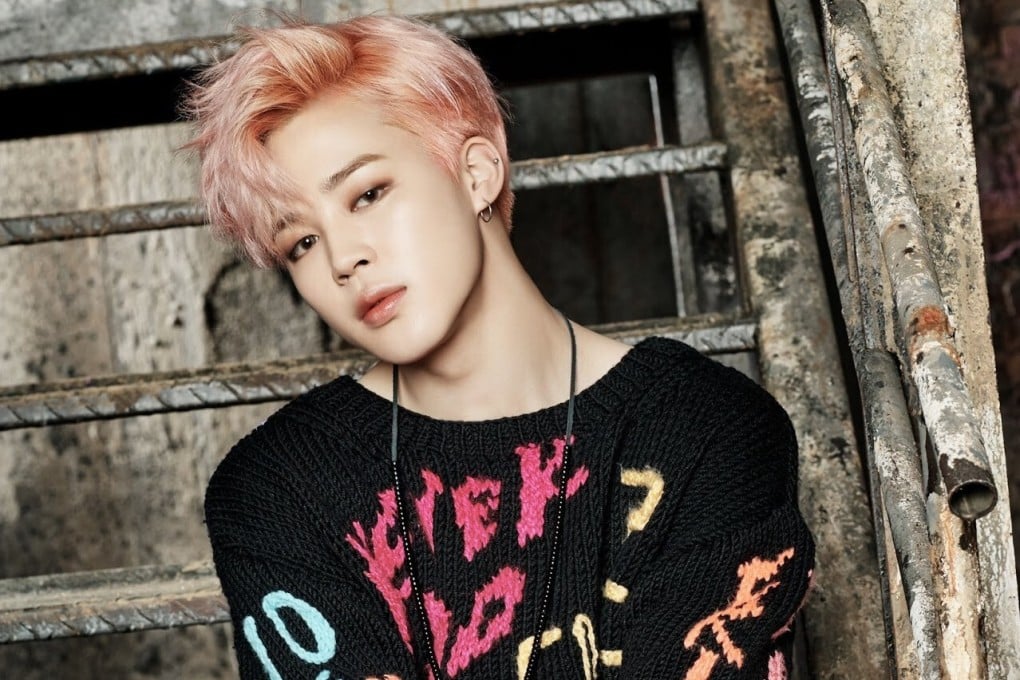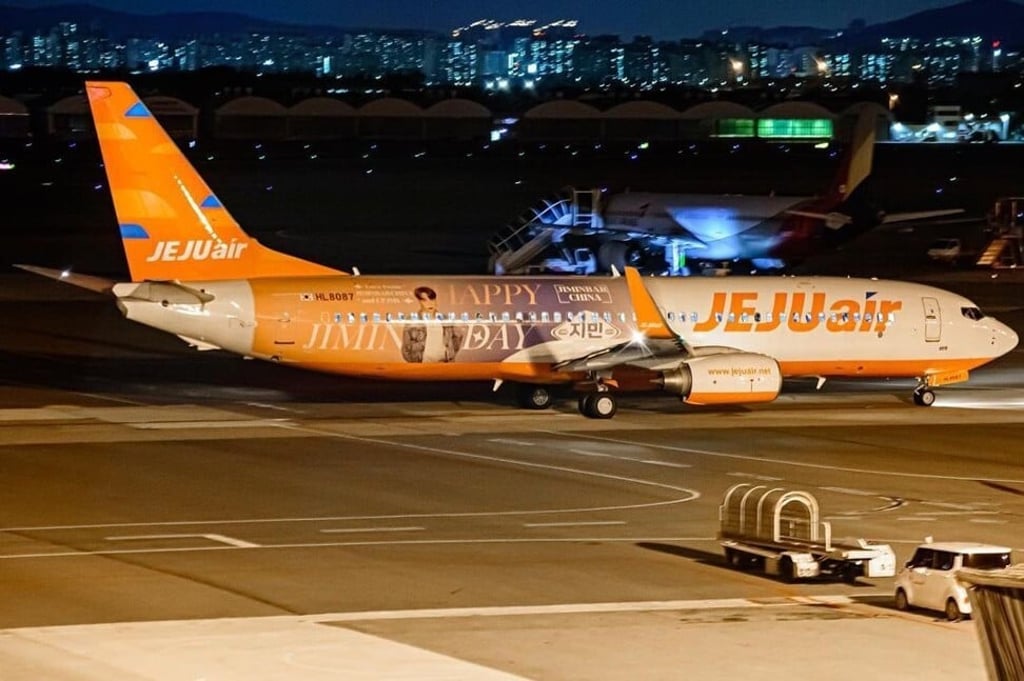Advertisement
BTS fans ensnared in China’s crackdown as K-pop market watches with ‘concern’
- Weibo has banned a fan club for 60 days over claims it illegally raised funds to celebrate the birthday of Jimin, a member of the South Korean boy band
- Beijing’s crackdown on ‘irrational’ idol fans comes as K-pop sales in China reached a monthly record of US$8.25 million in July
Reading Time:3 minutes
Why you can trust SCMP
3

Chinese social media platform Weibo has banned a BTS fan club from posting for two months, saying it illegally raised funds for the South Korean boy band, days after pictures of a customised aeroplane funded by the club were shared online.
Fan account JiMIN JMC, which had more than 1.1 million followers on Weibo, was focused on Jimin, one of the band’s seven members.
Last week, photographs circulated online of a customised Jeju Air aeroplane bearing images of him. The plane was part of the club’s plans to celebrate his 26th birthday in October.
Advertisement
The restrictions imposed on the fan account come as Beijing seeks to clean up the entertainment industry and clamp down on “irrational behaviour” exhibited by fans.
Advertisement
Last month, China’s state-owned news agency Xinhua said the cyberspace watchdog removed 150,000 examples of “harmful” online content and punished more than 4,000 fan-club-related accounts.
Advertisement
Select Voice
Choose your listening speed
Get through articles 2x faster
1.25x
250 WPM
Slow
Average
Fast
1.25x
